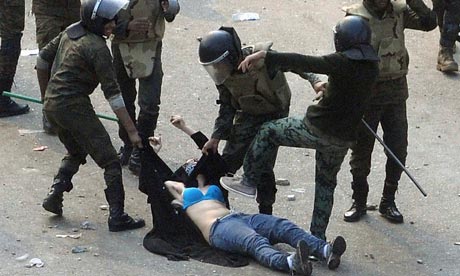By Adom M. Cooper
Impunity Watch Reporter, Middle East
IDLIB, Syria–Less than a week before the Arab League delegation is due to visit Syria as part of a deal hoping to end the bloodshed, as many as 200 individuals are reported to have lost their lives in the last two days across the country. There are various reports coming from Syria about the situations involving the death tolls.

Activist groups have reported the deaths on Tuesday 20 December 2011 after heavy fighting had occurred primarily in the province of Idlib, near Syria’s northern border with Turkey. On Monday 19 December 2011, activists claimed that as many as 110 people lost their lives in fighting acorss the country, including 60-60 army deserters who were apparently gunned down by machine-gun fire close to a village called Kafrouaid in Idlib.
More violence was reported in the region of the Zawiya Mountains on Tuesday 20 December 2011, with the Local Coordination Committes stating that 25 individuals had died close to the same village by machine-gun fire and shelling.
Many of the towns and cities located within Idlib are without Internet and mobile phone connections. Others are with electricity.
Rula Amin, an Al-Jazeera correspondent reported from Beirut, shared these sentiments about the violence.
“Activists and opposition figures say killings in Idlib area are very large. Dozens have been killed but people differ who were among those killed; some say they were defectors, others say armed men who oppose the government.”
The Syrian Observatory for Human Rights, a British based organization, stated on Monday 19 December 2011, more than 60 army deserters had been shot and killed as their tried to flee their base. Also, it reported that al-Assad had decreed the death penalty for anyone caught distributing arms “with the aim of committing terrorist acts.”
The state news agency SANA reported that security forces in Idlib had killed at least one “terrorist” and wounded several others.
Wissam Tarif, a well-known activist based in Beirut, stated that accounts from hospitals and witnesses suggested that some 260 individuals had been killed in Idlib alone on Tuesday 20 December 2011. He said that most of these individuals were defecting soldiers but also included some 93 loyalist soldiers and six civilians.
In the town of Jabal al-Zawiya alone, Tarif claimed that more than 3,000 soldiers had defected and that 10,000 had defected across Syria.
The Syrian National Council (SNC), the opposition umbrella group, stated that 250 individuals lost their lives between Monday 19 December and Tuesday 20 December. It released a statement urged the international community to act against the “horrific massacres.”
A team of observers from the Arab League is scheduled to arrive in Damascus later this week, as part of a signed deal between al-Assad’s regime and the Arab League in order to end the violence. The team is comprised of security, legal, and administrative observers, with human rights experts expected to follow.
Nabil el-Araby, the Arab League chief, stated that the initial team would go to Syria on Thursday 22 December 2011 while the rest will arrive by the end of December. He also stated that the Arab League desires to have 500 monitors in Syria by the end of the month and shared these sentiments with Reuters.
“It’s a completely new mission and it depends on implementation in good faith. In a week’s time, from the start of the operation, we will know if Syria is complying.”
The US and the EU have already imposed sanctions upon Syria, which combined with the unrest itself has pushed Syria’s economy into a free-fall. The Syrian pound fell nearly 2 percent on Tuesday 20 December 2011 to over 55 pounds per dollar, 17 percent down from the official rate before the crisis erupted.
In response to this economic depravity, Al-Baath newspaper reported that Prime Minister Adel Safar had instructed ministries to cut their expenditures by 25 percent. These cuts affected spending on elements such as fuel, stationery, and hospitality. Arab League chief el-Araby stated that the sanctions would stand until the League’s monitors begin reporting back on what they have seen on the ground.
The Arab League has threatened to request the UN Security Council to adopt its peace plan for Syria. This would considerably broaden the chances for international action inside Syria.
Syrian opposition leader Burham Ghalioun was not enamored by the actions of the Arab League thus far by allowing al-Assad’s regime to sign a proposal to end the violence.
“The Syrian regime is playing games and wants to buy time. We are quite surprised that the Arab League is allowing this to take place. This regime had proven time and time again that it is a regime built on lies and force. We need a safety zone to protect and prevent efforts by the regime to transform the crisis into a civil conflict.”
The UN has claimed that more than 5,000 individuals have been killed in Syria since the ant-Assad demonstrations and protests began in March, not missing the opportunity to be part of the Arab Spring. The Syrian government has reported that more than 1,100 security personnel have lost their lives to foreign-backed “armed terrorist gangs.”
The ban on international journalist inside Syria still stands, preventing all casualty claims from being independently verified.
For more information, please see:
Al-Jazeera – ‘Scores killed’ in Syria Violence – 21 December 2011
BBC – Syria crisis: ‘Nearly 200 Lives Lost’ In Last Two Days – 21 December 2011
Ahram – Deaths Mount in Syria as Arabs Move On Peace Plan – 20 December 2011
CNN – More Die in Syria After Deadliest Known Day – 20 December 2011
Reuters – Dozens Killed in Syria as Arab Peace Team Due – 20 December 2011
NYT – Syria Agrees To Allow Outside Observers, But Activists Remain Wary – 19 December 2011


